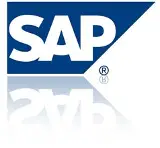Schedule an LSMW batch execution
You are using LSMW (Legacy System Migration Workbench), in Batch Input Recording mode (Fig 1), and want to make an update on several objects, which may take a lot of time, out of business hours ? This, without having to turn on your computer at midnight ?
This is possible, and even easy..
To do so, you have several possibilities, after your (or yours) Batch Input Session have been created (Fig 2) :
- Schedule all sessions created under a given Session Name,
- Schedule a single session based on its Queue ID
When you got the information (Session name or Queue ID), go in the ABAP Editor (SE38) (Fig 3), enter the choosen program name, RSBCBTC or RSBDCSUB, and execute it.
1 – several sessions by RSBDCSUB (Fig 4)
Once in the Batch Input: Process All Sessions, you just have to enter your Session Name (Fig 4) in the right place.
You can, and very certainly will have to, select only the sessions that you just created, by entering the sessions creation time slot. This while verifying that the “New” checkbox is checked.
2 – a single session by RSBDCSUB (Fig 8)
If you choose to plan only a Batch Input Session, you just have to enter its Queue ID (Fig 9) in the corresponding field under screen Utility Report For Batch Input.
Once your sessions are selected, you may want to plan their execution.
To do so, in Program menu, select “Execute in Background F9” (Fig 5). Choose then a printer (Fig 6) (do not hesitate to select a virtual one if you do not want to print anything), validate.
You can now schedule your execution (Fig 7). Click on “Date/Time”, and enter the starting hour – which will not be exact, as your execution will depend on other active process on the system – and other options.
Click then on save, and voilà !
To go further : you can then monitor your schedules status in transaction SM37 (Fig 10), simply by entering your login and the execution day.
You then see the past, present and future executions (Fig 11).
Images
- Fig1 : Batch Input Recordingg

- Fig2 : Input Session

- Fig3 : ABAP Editor

- Fig4 : Batch Input : Process All Sessions

- Fig5 : Execute in background

- Fig6 : Select printer

- Fig7 : Execution scheduling

- Fig8 : SE38 RSBCBTC

- Fig9 : Utility Report for Batch Input

- Fig10 : SM37 Simple job selection

- Fig11 : Job overview



















